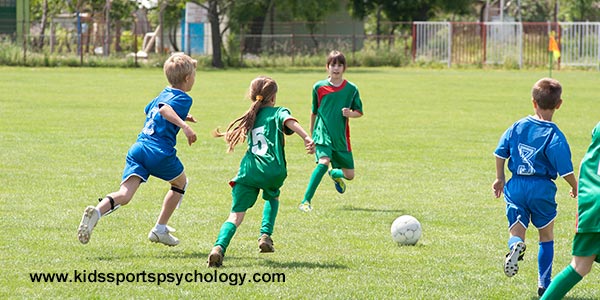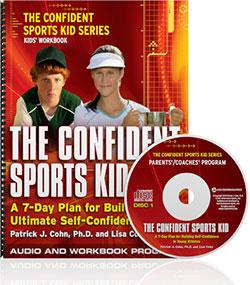
Anxiety in Young Athletes
Young athletes will often say they’re so anxious they feel sick to their stomach before a game or competition.
Some sports kids can’t shake this anxiety as a season progresses and they get used to performing in games.
While pregame jitters are normal and natural for athletes and can help athletes get pumped and perform well, outright anxiety can hurt their game.
The problem: When young athletes are very anxious, they don’t play intuitively and freely. Instead, they’re tight, scared and afraid to take risks.
What’s more, pregame anxiety that starts days before a game can cause them to feel tired before the game starts.
High levels of pregame anxiety can hurt their sleep, eating and enjoyment of sports, in addition to undermining their game.
Athletes at every level can experience this kind of anxiety: Olympic, professional, collegiate, high school and young athletes can succumb to these feelings.
Performing tight and fearful can be a big source of frustration and disappointment for kids who work hard to improve, They may even consider quitting youth sports.
NFL Pro Bowl guard Brandon Brooks of the Philadelphia Eagles described his own high anxiety before games.
“Before every game, I throw up. I can’t stop thinking about letting my team down, letting the world down, the microscope being on me… All of a sudden you’re becoming the guy, everyone counting on me, and I’ve got to make the play every time. In this game, the talent gap is so small, to think like that will eat you up.’’
Some athletes, like Brooks, seek help from mental game coaches to overcome this challenge. Mental game coaches focus on ways to control anxiety and compete with the kind of confidence that produces positive results.
Brooks sought help and is mentally tougher because of it. In 2018, Brooks said that overcoming his anxiety was his biggest victory that season.
“But the thing that I’m most proud of is, I played all 16 games without having anxiety, without missing a game. That was my biggest goal. I’m more confident in myself than I’ve ever been. I’m more secure than I’ve ever been,” he said.
Like Brooks, young athletes can overcome anxiety by improving their mental game…
First of all, athletes can use a pregame routine to feel mentally prepared. They can develop routines that help them focus on the tasks they need to execute in their position.
For anxious athletes, they can use relaxation exercises such as deep breathing, tighten and release their muscles, listen to music with noise cancelling headphones, or do calming visualization or meditation.
They need to avoid thinking about outcomes such as the score or win, or worry about not disappointing others. Keep in mind that fear of failure is often the culprit for athletes who become anxious in competition.
Many high-anxious athletes worry about making mistakes. They worry about what others will think of their performance. They don’t want to disappoint teammates, for example.
If your young athletes worry about what others think, provide these tips:
- Focus on the process, not outcome: stay in the moment.
- Let go of trying to make everyone happy with their performance.
- Play for themselves, not to gain others’ respect their game (or avoid disappointing others).
Related Sports Psychology Articles
- How Choking Hurts Athletes’ Performance
- Teach Sports Kids To Focus on What They Can Control
- Tips for Improving Competitiveness in Sports
*Subscribe to The Ultimate Sports Parent Podcast
*Subscribe to Peak Performance Sports on Youtube
Download a free sports psychology report to improve your mental game!
The Confident Sports Kid

When kids lack confidence, they doubt themselves, stop taking risks, play tentatively, and are hard on themselves. As a result, kids often lose their motivation to improve. Ultimately, these barriers keep them from enjoying sports and making the most of their physical talent.
“The Confident Sports Kid” program is actually two programs: one that teaches sports parents how to boost their kids’ confidence, and another that teaches young athletes age 8 to 18 how to improve their self talk, avoid negative thinking, overcome expectations that limit confidence, and much more. The program will help kids boost their confidence in sports and life…and enjoy sports more.
